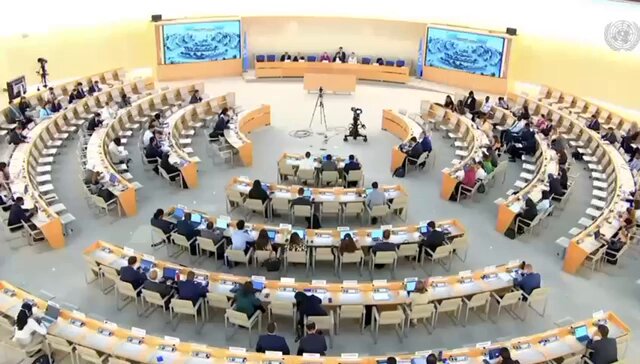The Government of Tanzania has firmly denied recent accusations of human rights violations raised by a representative of the East and Horn of Africa Human Rights Defenders Network. Speaking at the 5th meeting of the 59th session of the UN Human Rights Council in Geneva, Tanzania’s Ambassador and Permanent Representative to the United Nations Offices, Dr. Abdallah Possi, defended the country’s democratic credentials and commitment to human rights.
In his official address, Dr. Possi reiterated that Tanzanians enjoy constitutional freedoms, including the right to freely express their views—even when those views are critical of the government. He dismissed claims suggesting otherwise, labeling them as misleading and unrepresentative of the situation on the ground.
“Citizens of Tanzania have the freedom to express themselves and share their opinions, including criticism of government decisions. These rights are constitutionally guaranteed and respected,” Dr. Possi told the international forum.
The Ambassador stated that Tanzania remains committed to all its obligations under both domestic and international human rights frameworks. He pointed to the country’s consistent record of democratic elections as evidence of its political maturity and respect for civil liberties.
“Tanzania is a mature democracy,” he emphasized. “We have held seven free, fair, and peaceful multiparty elections, and we have never failed to conduct national elections as outlined in our Constitution.”
Dr. Possi acknowledged that the country is home to a diverse population with various ethnic backgrounds, religious beliefs, and political ideologies, and said Tanzania’s ability to maintain peace amid such diversity stems from a firm commitment to the rule of law and national unity.
He further addressed the specific individuals cited by the East and Horn of Africa Human Rights Defenders Network. According to Dr. Possi, those individuals were not denied rights arbitrarily but were instead subject to lawful immigration procedures.
“Unfortunately, the individuals mentioned failed to declare their genuine purpose of entering the country. This is a standard requirement under immigration laws—not just in Tanzania, but in many sovereign states globally,” he explained.
Dr. Possi’s remarks come in response to a statement presented earlier during the Human Rights Council meeting, where the East and Horn of Africa Human Rights Defenders Network expressed concern over what it described as a shrinking civic space and increased pressure on civil society organizations and activists in Tanzania.
Human rights watchdogs have occasionally raised questions about the Tanzanian government’s treatment of political opponents, journalists, and activists, particularly during and after electoral cycles. However, Tanzanian authorities maintain that the country operates within legal and democratic frameworks and that all state actions are subject to judicial review and institutional oversight.
The representative from Tanzania reaffirmed the government’s openness to dialogue and cooperation with international human rights bodies, provided that such engagements are based on factual reporting and mutual respect.
“As a sovereign state, Tanzania welcomes constructive criticism and meaningful dialogue. However, we also expect accountability and honesty from those raising concerns,” said Dr. Possi.
In concluding his address, the Ambassador reminded the council that peace and national unity are not accidental but are a result of conscious adherence to democratic principles, institutional strength, and inclusive governance.
As the Human Rights Council continues its 59th session, Tanzania’s response underscores the ongoing tensions between African governments and international rights organizations, particularly when it comes to narratives around civil liberties, national sovereignty, and the enforcement of human rights standards.
